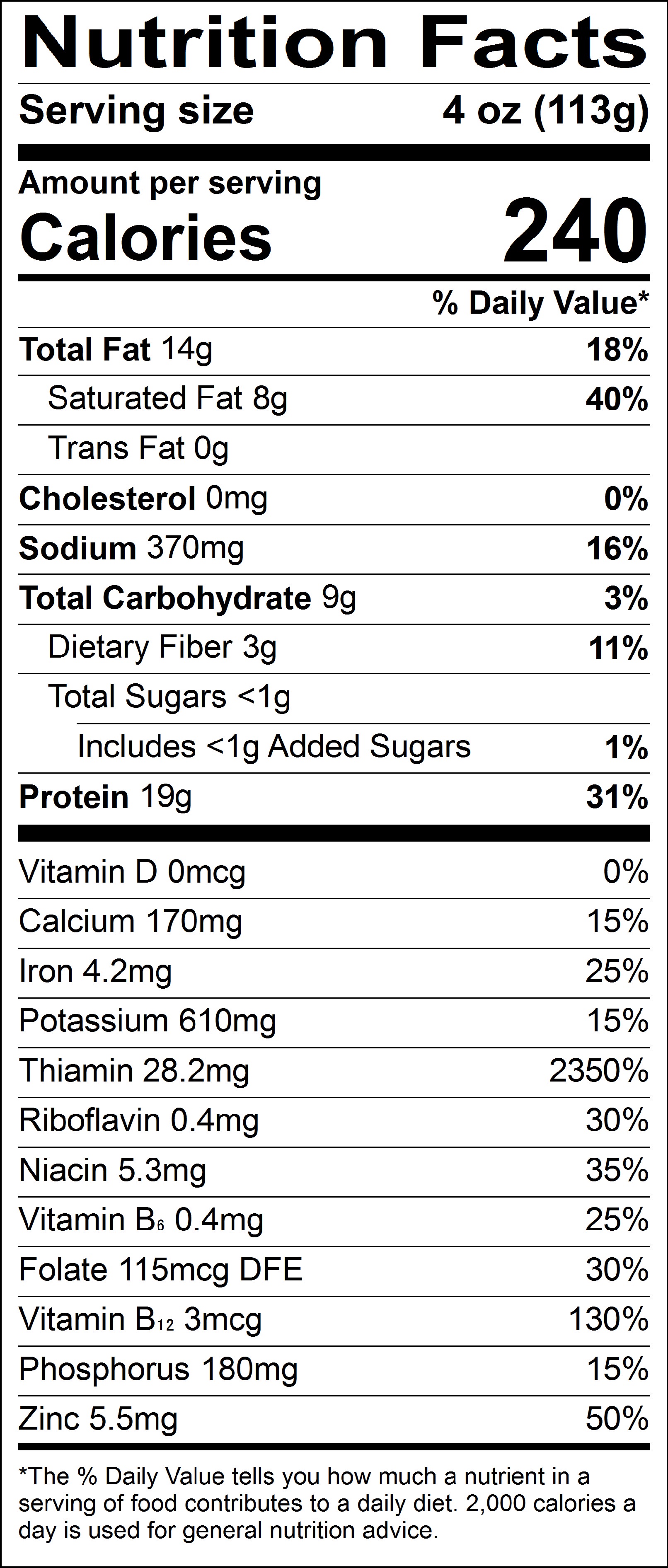+1. No fake, ultra-processed pseudo-meat for me, thank you.
I'll have mine with a partially-gelatinated non-dairy gum-based beverage, please.
+1. No fake, ultra-processed pseudo-meat for me, thank you.
Bacon cheeseburger and a beer please!
No onion rings or fries. Gotta stay a little healthy eh?
As you might imagine, we did read the ingredients before buying. And we weren’t looking for “diet food.” What in the ingredients bothers you?


Sure but have you never heard the "silent scream" of soybeans going under the knife? And they can't even TRY to run away.haha@ "we should all be so fortunate". Fair point!
He worked at one last year. There are also hundreds of undercover videos at slaughterhouses available online. Nothing good happens there, but we all have a choice whether or not we want to support it.
This book also has numerous testimony from slaughterhouse workers:
https://www.amazon.com/Slaughterhouse-Shocking-Inhumane-Treatment-Industry/dp/1591024501
I think a big part of the problem is that most of us have no idea where our meat comes from (other than "the supermarket"). If you don't know your producer, your meat could be laced with pretty much anything.
Sometimes I end up buying chicken at the supermarket, but mostly if I am not eating game I try to source my meat direct from the grower. A couple of buddies and I are splitting a 276 pound pig delivered to the butcher a couple days ago by a family where the kids raised pigs for 4H. I have also bought pork from a nearby small farm where I have actually seen his setup and watched the pigs hop around doing their thing.
It’s great having that kind of local access, plus a large chest freezer I assume.
I think a big part of the problem is that most of us have no idea where our meat comes from (other than "the supermarket"). If you don't know your producer, your meat could be laced with pretty much anything.
Sometimes I end up buying chicken at the supermarket, but mostly if I am not eating game I try to source my meat direct from the grower. A couple of buddies and I are splitting a 276 pound pig delivered to the butcher a couple days ago by a family where the kids raised pigs for 4H. I have also bought pork from a nearby small farm where I have actually seen his setup and watched the pigs hop around doing their thing.
Could not get rifle tags for deer or elk this year so I have been learning to shoot a smokepole for muzzleloader season. Got a muzzleloader bear tag this year as.well.
But I’m on a strong real food kick which means completely avoiding highly processed foods, and these “plant-based meat” foods are extremely processed.
Personally, I would never eat these processed fake meat products. Like you, I try to emphasize real/whole foods (that our bodies have evolved to consume), and avoid franken-foods like this stuff. No thanks!
While it undoubtedly would be a healthy lifestyle, I cannot imagine avoiding all processed foods. I wouldn't miss things like Impossible Burgers and Doritos, but what about yogurt, olive oil, bread, cheese, wine, beer? All those things are "processed", as they are the result of taking raw ingredients found in nature and manipulating them into quite different forms. Are you a real-food purist, or are you OK with things like olive oil, wine, and cheese? Where do you draw the line? What makes something processed, and therefore, not "real food"?
For me personally, wine and cheese are fine, as they are fermented foods with few or no added ingredients, so not highly processed. All fermented vegetables are good too. Good quality olive oil is okay too, as that is simply cold-pressed, not really processed per se. Yogurt would be okay also if it was real yogurt that did not have added sugar, artificial flavor, and other stuff.......and it's hard to find real yogurt in the stores these days.
Probably a better term to use is "ultra-processed". Those are the things I really try to avoid. In that category I would include anything that comes in a box or bag with a long list of ingredients on the side. I would also include anything with added ingredients such as high-fructose corn oil, artificial colors and flavors, emulsifiers, etc.. And the industrial seed oils are clearly ultra-processed, since the oil is extracted and altered by using things like hexane and deodorizers. Margarine is ultra-processed.
The fake meat products are clearly ultra-processed, as you can see if you look at the list of ingredients that goes into them, and how the ingredients are manipulated.
Bread and things made from refined grains are probably in the ultra-processed category also (in my book), since the grain (seed) is ground into a powder by breaking the cell wall. These "acellular" carbs do promote insulin resistance if eaten often, as you can see if you check your blood sugar after eating a few slices of bread. I'm not perfect, though, so I do still eat bread occasionally, although I try to limit it. I won't eat things like cookies, doughnuts, and other pastries.
I try to stick mostly with real/whole foods (veggies, meat, fish/shellfish, eggs, nuts, some fruit such as berries) because I believe those are the foods have evolved to consume. Most people (including me) would have a hard time eating those foods 100% of the time, but it's not too hard to stick to the "80/20" rule, where you consume the good stuff at least 80% of the time. If you do that, your diet will still be FAR superior than the diet of the average American, and your health will probably be better as well, IMO.
